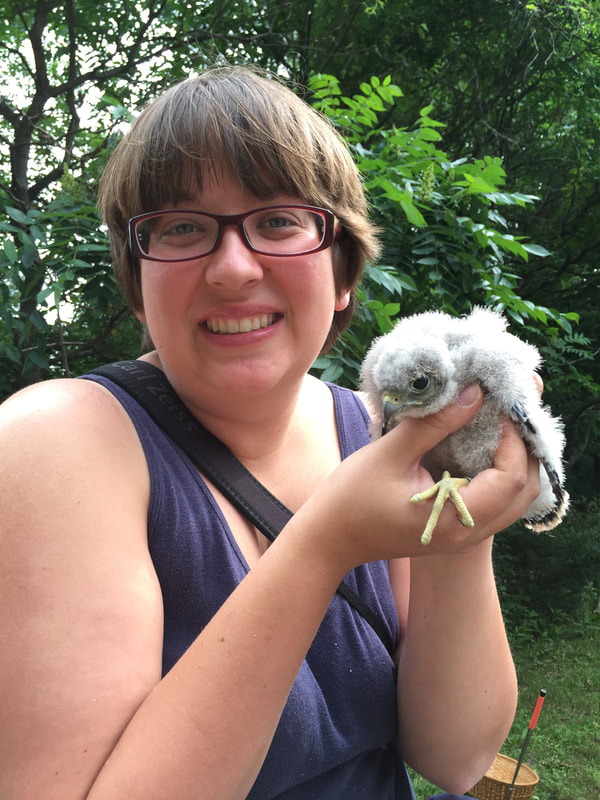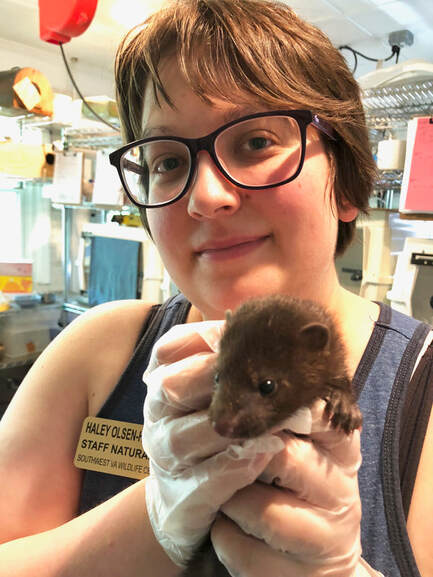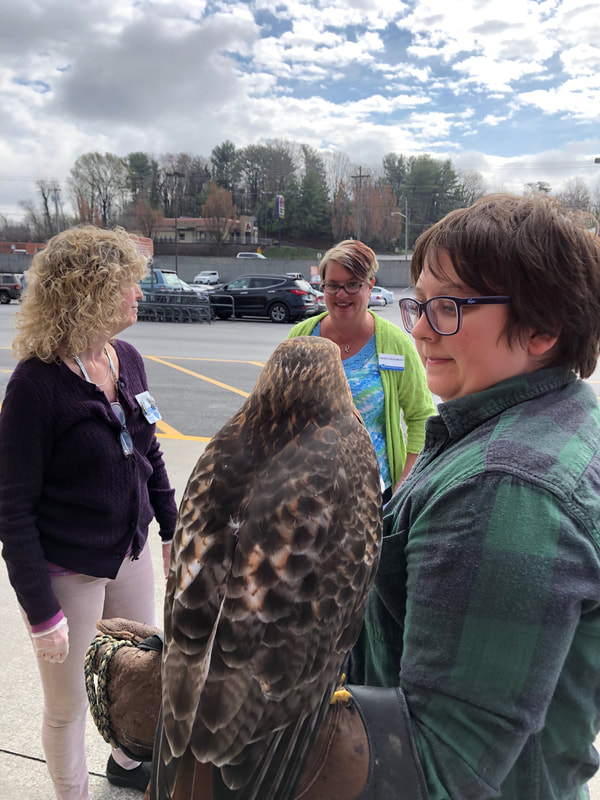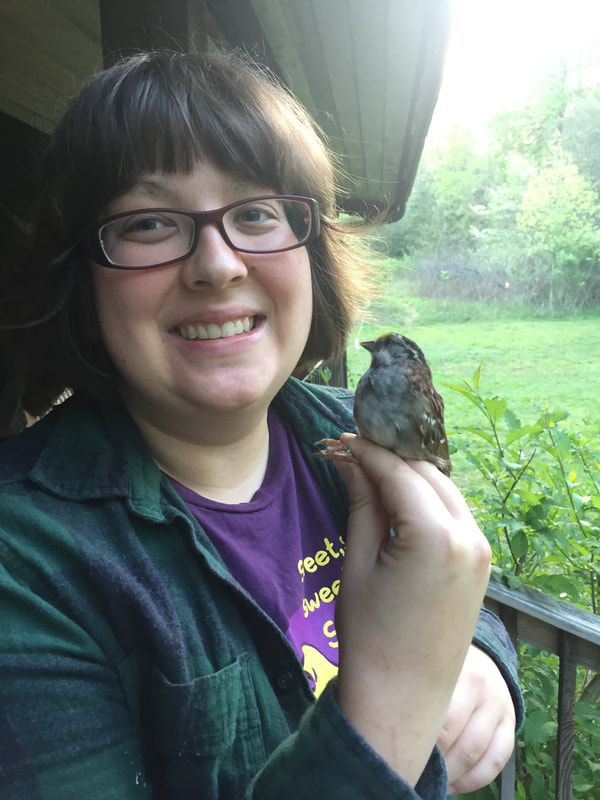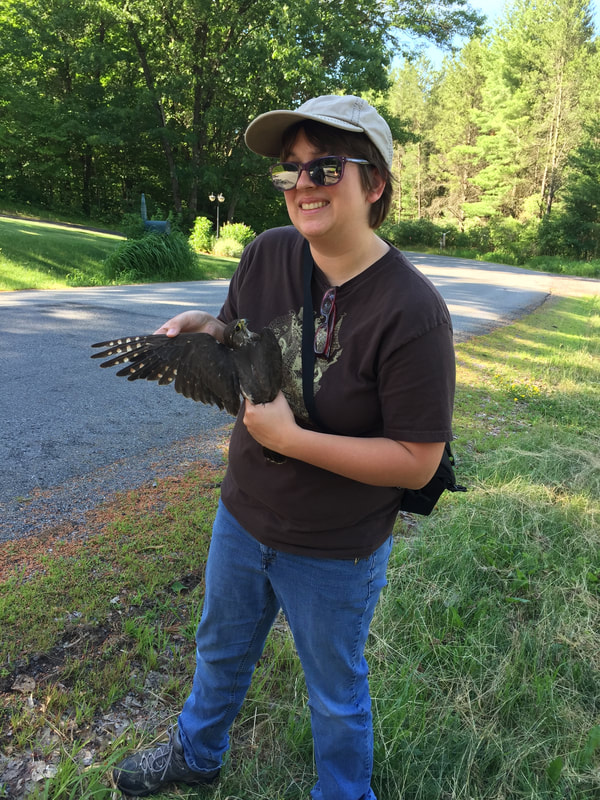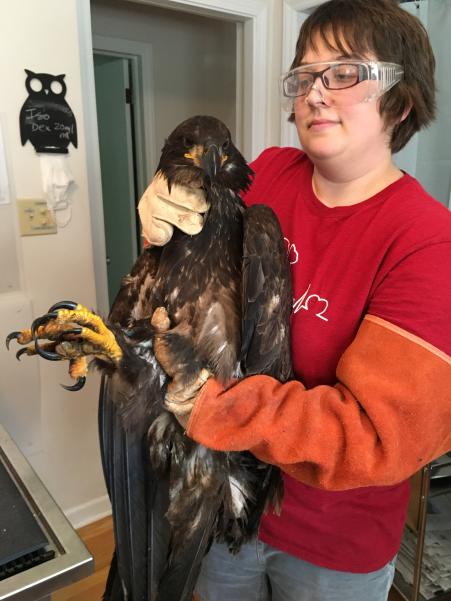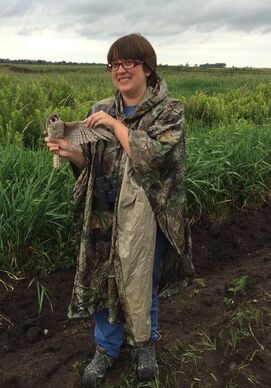|
You're probably here because you want to learn more about me! I appreciate your interest and will do my best to explain myself and my interests. I have always had an interest in all wildlife even as a small child but my passion and primary interest has always been birds. My journey into wildlife is extensive, but my first exposure to hands-on wildlife work was volunteering at a wildlife rehabilitation facility while I was in high school. I volunteered at other wildlife rehabilitation facilities as I moved around the country and began birding seriously before I moved to Virginia in the hopes of getting a degree from Virginia Tech, who had a well-ranked wildlife conservation program. As a non-traditional student who lived a very non-traditional life, I took classes at community colleges while gaining hands-on experience banding raptors and songbirds and continuing wildlife rehabilitation, starting as a volunteer at Southwest Virginia Wildlife Center of Roanoke and eventually working my way up the ranks as my skills grew. Fast forward a few years and became the Director of Operations of the Center, received my bachelors degree, co-authored my first scientific publication, won some cool awards, and gained countless field and lab experiences in the process.
|
|
While my interest in wildlife is broad I’m focused on ornithology, understanding the rapid decline of formerly common species and the conservation of at-risk species, invertebrate ectoparasites, human dimensions issues, outreach and education, the natural history of wildlife, and understanding what wildlife conservation will look like as the world urbanizes and our relationship with wildlife changes. I’m especially interested in better quantifying data collected by wildlife rehabilitators. Wildlife rehabbers can and do collect a lot of data that would be useful to conservation science as a whole and I’m passionate as how rehabilitation, conservation science, and citizen science all can interact and benefit each other. As a personal example, I wrote protocol with Dr. Ashley Peele to adapt rehabilitation records to aid in the Virginia Breeding Bird Atlas, making it (as far as we know) the first effort of a wildlife rehabilitation center to contribute data. I believe there are many other opportunities as well—the Center, working with Dr. Karen Powers of Radford University, has also helped document first county records of mammals. Rehab practices may also be useful to help develop new captive-rearing techniques of at-risk wildlife species—as we face major threats to biodiversity insights as to how to care for odd species in captivity may become increasingly important if we can't intervene fast enough to save wild populations. If we think creatively we can have a more holistic understanding of the world.
|
|
My experiences and skill set are broad. I have banded and aged hundreds of birds, surveyed for salamanders, caught and tagged small rodents, developed an Access database for the Virginia Department of Wildlife Resources to organize their fish hatchery data, analyzed camera trap photos, collected blood and ticks from deer for disease research, taxidermied hundreds of animals for use in natural history collections (ranging from as small as a hummingbird to as big as a wild turkey), collected and processed water and substrate samples from barrier islands, radio-tagged shorebirds, re-sighted banded birds, repaired mist nets, counted hemlock wooly adelgid cisterns, and much more. I also studied abroad in Panama, where I helped extract tropical birds out of mist nets and received a greater understanding on what it means to conserve nature in other parts of the world. In addition to field/lab work, I have performed extensive award-winning outreach efforts at community festivals, guest lectured at several schools, taught at wildlife rehabilitation conferences, and been interviewed by the media dozens of times. I am also a graduate of Leadership Institute in the College of Natural Resources at Virginia Tech, a program aimed at developing the next generation of leaders in environmental conservation. I hope to continue my efforts to understand wildlife conservation in a holistic way.
|
|
I also believe it is important to bring diverse people into wildlife conservation spaces. Wildlife issues are human issues—the health of one impacts the health of the other—and without understanding and inviting alongside the whole spectrum of humanity along for the conservation ride we won't be able to save the natural world. As a queer neurodivergent person myself I know how marginalized people can feel left out or excluded from conservation and other STEM fields. After graduating high school I initially dropped out of college because I didn't see other people like me and didn't think I could live the happy, fulfilling life I wanted to lead in the field I wanted to be in and be my true self at the same time. The reason why I was drawn to nature to begin with was because it was non-judgemental — the trees don't care about how I process the world, the birds don't care who I love or what I identify as, and a squirrel is just as fearful of me as it is of any other person in the world. Nature is filled with exceptions and contradictions and the uniqueness of individuals is what makes a species robust and strong and able to adapt in a changing world. The field of conservation needs to do the same. Outside of my work, I enjoy following and watching the Eurovision Song Contest, playing tabletop RPGs, writing, playing video games, making art, swimming, and spending time outside looking at living things. |
